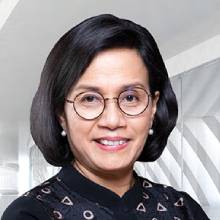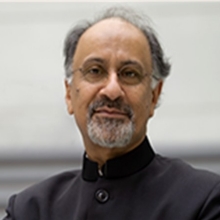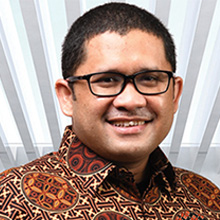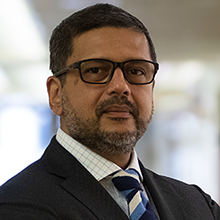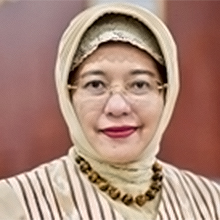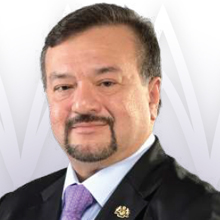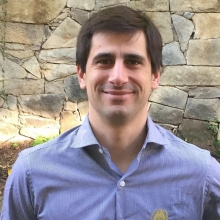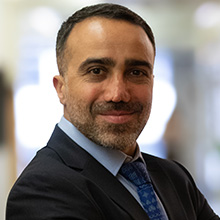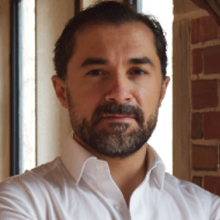- OVERVIEW
- AGENDA
- SPEAKERS
- RELATED
Middle-income countries, home to 6 billion people, face the challenge of achieving high-income status within the next two or three decades. Since the 1990s, only 34 countries have succeeded, while 108 remain stuck in the “middle-income trap,” with median income per capita never rising above 10% of the U.S. level since 1970. This challenge is compounded by debt, aging populations, and protectionism. The World Development Report 2024 urges lower-middle-income countries to adopt modern technologies and upper-middle-income countries to focus on innovation. Despite ASEAN’s strong growth, the region faces challenges such as instability, trade issues, and climate change.
The International Seminar and Growth Academy ASEAN, held in Jakarta on September 23-24, will focus on helping ASEAN countries escape the middle-income trap through strategies that promote economic growth and innovation. The two-day event will feature a public knowledge session and a customized version of the World Bank's Growth Academy, offering insights for researchers and policymakers on sustainable growth and innovation.
— DAY 1 —
Regional Launch of the World Development Report 2024 & Growth Academy for ASEAN Countries (segment 1)
Monday, September 23, 2024 |
|
10:00–10:05 |
Opening RemarksFebrio Kacaribu, Head of Fiscal Policy Agency, Ministry of Finance of the Republic of Indonesia |
10:05–10:15 |
Overview |
| 10:15–10:30 | Keynote SpeechSri Mulyani Indrawati, Minister of Finance of the Republic of Indonesia |
| 10:30–10:45 | Keynote SpeechYB Senator Datuk Seri Amir Hamzah Azizan, Minister of Finance II, Malaysia |
10:45–11:30 |
Presentation on WDR2024Indermit Gill, Senior Vice President and Chief Economist, the World Bank Somik Lall, Director of WDR2024 and Senior Adviser to the Chief Economist of the World Bank Group |
| 11:30–11:45 | Coffee Break |
Panel DiscussionImplementing Recommendations from WDR2024: Growth Challenges and Opportunities in Indonesia |
|
11:45–12:00 |
Keynote SpeechRosan Roeslani, Minister of Investment / Chairman of the Investment Coordinating Board (BKPM) |
12:00–12:10 |
Presentation by Ministry of Finance of IndonesiaFebrio Kacaribu, Head of Fiscal Policy Agency, Ministry of Finance of the Republic of Indonesia |
12:10–12:20 |
Presentation by Ministry of National Development Planning / National Development Planning Agency of IndonesiaAmalia Adininggar Widyasanti, Deputy for Economic Affairs |
| 12:20–12:30 | Presentation by Ministry of Investment / Indonesia Investment Coordinating Board (BKPM)Heldy Satrya Putera, Secretary General for the Ministry of Investment |
| 12:30–12:40 | Presentation by Bank IndonesiaYoga Affandi, Executive Director, Head of the Bank Indonesia Institute, Bank Indonesia |
12:40–13:25 |
Panel DiscussionModerator: Somik Lall |
| 13:25–14:30 | Lunch and Networking |
The Growth Academy for ASEAN Countries |
|
| 14:30–14:35 | About the Growth AcademySomik Lall, Senior Adviser to the Chief Economist of the World Bank |
| 14:35–15:05 | Presentation on Measuring Growth and Development in Middle Income CountriesKenan Karakülah, Economist, Development Economics Vice-Presidency, World Bank |
| 15:05–16:00 | Participants’ Discussion |
| 16:00–16:05 | Closing sessionSomik Lall |
— DAY 2 —
Growth Academy for ASEAN Countries (segment 2)
Tuesday, September 24, 2024 |
|
9:00–9:30 |
Presentation on Allocating Talent Efficiently to Unlock Economic DevelopmentUfuk Akcigit, WDR2024 Academic Advisor (remote participation) |
9:30–10:30 |
Participants’ Discussion |
10:30–11:00 |
Presentation on Challenges and Opportunities of the Energy Transition for Middle Income CountriesMaria Vagliasindi, Lead Economist, Infrastructure Practice Group, World Bank |
11:00–12:00 |
Participants’ Discussion |
| 12:00–12:30 | Presentation on Role of Firms in Driving Economic Growth in Middle-Income EconomiesRoberto Fattal Jaef, Senior Economist, Development Economics, World Bank |
| 12:30–13:30 | Participants’ Discussion |
| 13:30–13:45 | Closing RemarksThomas Djiwandono, Vice Minister of Finance II, Ministry of Finance of the Republic of Indonesia |
| 13:45 | End of the Meeting(Lunch will be provided) |
Date: September 23 - 24, 2024 ET
Location: Dhanapala Hall, Ministry of Finance of Indonesia, Jakarta, Indonesia

